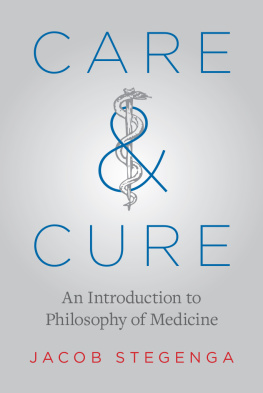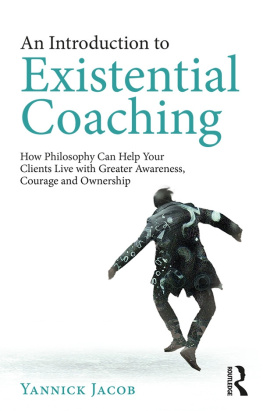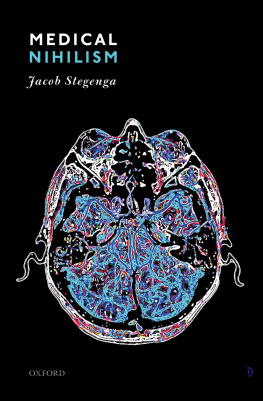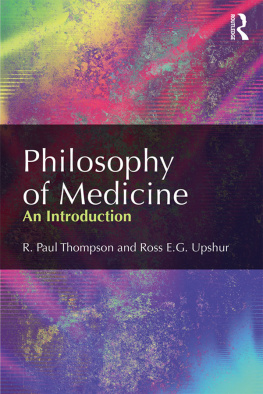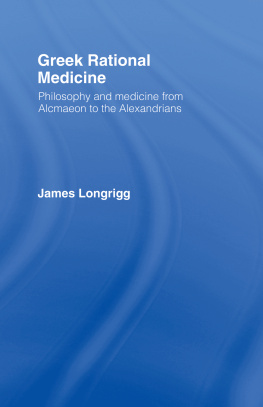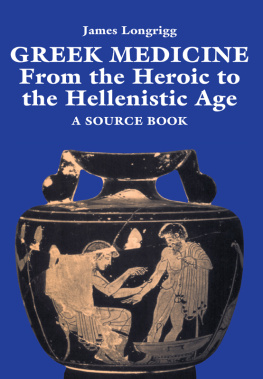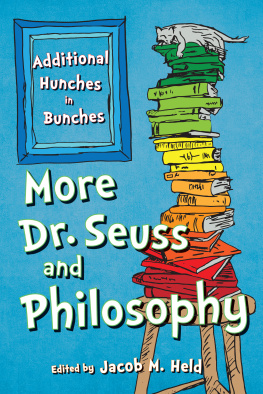Jacob Stegenga - An Introduction to Philosophy of Medicine
Here you can read online Jacob Stegenga - An Introduction to Philosophy of Medicine full text of the book (entire story) in english for free. Download pdf and epub, get meaning, cover and reviews about this ebook. year: 2018, publisher: University of Chicago Press, genre: Science. Description of the work, (preface) as well as reviews are available. Best literature library LitArk.com created for fans of good reading and offers a wide selection of genres:
Romance novel
Science fiction
Adventure
Detective
Science
History
Home and family
Prose
Art
Politics
Computer
Non-fiction
Religion
Business
Children
Humor
Choose a favorite category and find really read worthwhile books. Enjoy immersion in the world of imagination, feel the emotions of the characters or learn something new for yourself, make an fascinating discovery.
- Book:An Introduction to Philosophy of Medicine
- Author:
- Publisher:University of Chicago Press
- Genre:
- Year:2018
- Rating:5 / 5
- Favourites:Add to favourites
- Your mark:
- 100
- 1
- 2
- 3
- 4
- 5
An Introduction to Philosophy of Medicine: summary, description and annotation
We offer to read an annotation, description, summary or preface (depends on what the author of the book "An Introduction to Philosophy of Medicine" wrote himself). If you haven't found the necessary information about the book — write in the comments, we will try to find it.
An Introduction to Philosophy of Medicine — read online for free the complete book (whole text) full work
Below is the text of the book, divided by pages. System saving the place of the last page read, allows you to conveniently read the book "An Introduction to Philosophy of Medicine" online for free, without having to search again every time where you left off. Put a bookmark, and you can go to the page where you finished reading at any time.
Font size:
Interval:
Bookmark:
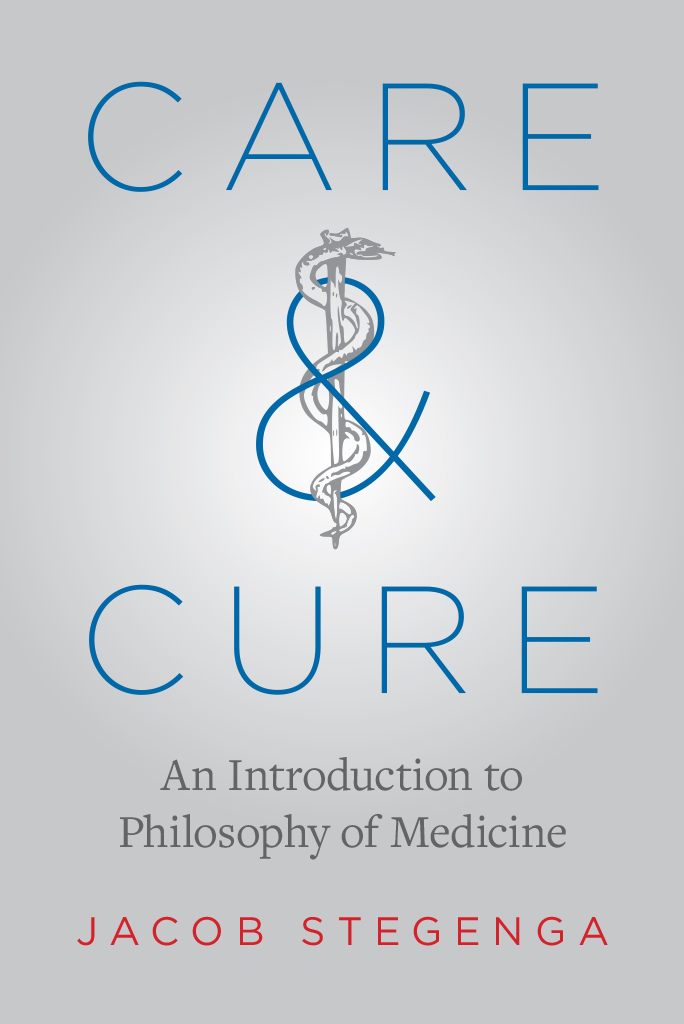
JACOB STEGENGA
THE UNIVERSITY OF CHICAGO PRESS
Chicago and London
The University of Chicago Press, Chicago 60637
The University of Chicago Press, Ltd., London
2018 by The University of Chicago
All rights reserved. No part of this book may be used or reproduced in any manner whatsoever without written permission, except in the case of brief quotations in critical articles and reviews. For more information, contact the University of Chicago Press, 1427 E. 60th St., Chicago, IL 60637.
Published 2018
Printed in the United States of America
27 26 25 24 23 22 21 20 19 18 1 2 3 4 5
ISBN -13: 978-0-226-59081-3 (cloth)
ISBN -13: 978-0-226-59503-0 (paper)
ISBN -13: 978-0-226-59517-7 (e-book)
DOI : https://doi.org/10.7208/chicago/9780226595177.001.0001
Library of Congress Cataloging-in-Publication Data
Names: Stegenga, Jacob, author.
Title: Care and cure : an introduction to philosophy of medicine / Jacob Stegenga.
Description: Chicago : The University of Chicago Press, 2018. | Includes bibliographical references and index.
Identifiers: LCCN 2018020253 | ISBN 9780226590813 (cloth : alk. paper) | ISBN 9780226595030 (pbk. : alk. paper) | ISBN 9780226595177 (e-book)
Subjects: LCSH : MedicinePhilosophy. | MedicineMethodology.
Classification: LCC R 723 . S 775 2018 | DDC 610.1dc23
LC record available at https://lccn.loc.gov/2018020253
 This paper meets the requirements of ANSI / NISO Z 39.48-1992 (Permanence of Paper).
This paper meets the requirements of ANSI / NISO Z 39.48-1992 (Permanence of Paper).
For Elah and Caeli
This book was written while I was at the University of Victoria and completed while at the University of Cambridge. Both universities provided ample time to devote to writing.
Though this book draws heavily on the scholarship of others, to keep the text readable I do not burden it with citationsthe intellectual credit is noted in the Further Reading section of each chapter.
For close readings and detailed commentary on full drafts of this book, I thank Adrian Erasmus, Hamed Tabatabaei Ghomi, and Dasha Pruss. For comments on particular chapters I am also grateful to Susan Castro, Brendan Clarke, John Frye, and John Huss and his students. The undergraduate courses and graduate seminars that I have taught over the past several years suggested the need for this book, and much of its content started as teaching notes and classroom discussions. I am grateful to my students.
This book can be used as a foundational text in an introductory philosophy of medicine course for students who have little or no background in philosophy. Supplemented with the additional readings listed at the end of each chapter, it can be used as a background text in an advanced philosophy of medicine seminar. This book is designed to form the core reading for such courses. Each chapter covers material for about one week of lectures or seminar discussions, and thus the fourteen chapters of the book can be used to structure a typical university course.
Sample syllabi for such courses are available on the dedicated book website (press.uchicago.edu/sites/stegenga/), and you can also find them on my Cambridge page (www.people.hps.cam.ac.uk/index/teaching-officers/stegenga). One syllabus is for a lower-level philosophy of medicine course, and another syllabus is for an upper-level philosophy course or graduate seminar.
This book can also be used in medical training as part of a course designed to elicit critical reflection among medical students about the foundations of their profession. Each of the four parts of the book could be suitable for particular modules in a medical curriculum.
At the end of each chapter I include further readings. Many of these readings are linked via the dedicated book website. I also include discussion questions at the end of each chapter that can be used to stimulate classroom discussion and to prompt student essays.
Philosophy of medicine has become a vibrant intellectual landscape. This book is a map of that landscape.
Medicine is, of course, a hugely important practice in our society. Two of the main aims of medicine are to care and to cure. That sounds simple. But in the pursuit of these aims, medicine relies on concepts, theories, inferences, and policies that are complicated and controversial. This book describes some of these philosophical complications and controversies underlying medicine.
What makes a problem philosophical? This, unfortunately, is not a simple question. Indeed, it is itself a philosophical question. In this book I avoid heady debates about what counts as philosophy and adopt a pragmatic view: philosophical problems are those for which there exist multiple compelling and competing views, and which cannot be answered straightforwardly by empirical means. There are many problems like this in various domains of life, such as ethics, religion, and politics. A prominent subdiscipline of philosophy is philosophy of science, and philosophy of medicine is a relatively recent field of study within philosophy of science. Philosophy of science is the application of philosophical methods to science and the study of philosophical puzzles that arise within science. Philosophy of science usually addresses the epistemology, metaphysics, and logic of science, though it also addresses the history, sociology, and politics of science. Philosophy of medicine, in turn, is the study of epistemological, metaphysical, and logical aspects of medicine, with occasional forays into historical, sociological, and political aspects of medicine.
Each chapter in this book presents difficult puzzles about medicine and discusses and evaluates prominent positions on these puzzles. Does being healthy involve merely the absence of disease, or does being healthy require some other positive factors? Is a disease simply an abnormal physiological state, or is a disease a state that has an evaluative component? Is social anxiety disorder a genuine disease? What sort of evidence is required to justify causal inferences about the effectiveness of medical interventions? Is medicine good at achieving its aims of caring and curingare most mainstream medical interventions effective? Is homeopathy effective? Does psychiatry aim to care for patients with mental illnesses, or rather does psychiatry aim to control feelings and behaviors that do not fit well with modern society? Should medical innovations be protected by patent, or should such innovations be contributions to the common good, unprotected by intellectual property laws?
Many of these questions are interrelated. For example, consider this seemingly straightforward question: are antidepressants effective for treating depression? Of course, this is in part an empirical question, and so answering the question requires a compelling view about what sort of evidence is required to answer such questions. Since that evidence comes out of a thorny social, legal, and financial nexus, a full understanding of an answer to this question requires insight into that nexus. Since antidepressants are said to target localized microphysiological entities, answering the question depends on a view about the relationship between the experiences of peopletheir feelings and behaviors and symptomsand the activities of chemicals. Since the question is about a disease category that many people consider to be poorly understood and indeed controversial, properly understanding the question requires insight into the general nature of health and disease. These topics and more are discussed throughout the book, and insights from one part of the book help elucidate puzzles from other parts of the book.
Next pageFont size:
Interval:
Bookmark:
Similar books «An Introduction to Philosophy of Medicine»
Look at similar books to An Introduction to Philosophy of Medicine. We have selected literature similar in name and meaning in the hope of providing readers with more options to find new, interesting, not yet read works.
Discussion, reviews of the book An Introduction to Philosophy of Medicine and just readers' own opinions. Leave your comments, write what you think about the work, its meaning or the main characters. Specify what exactly you liked and what you didn't like, and why you think so.

